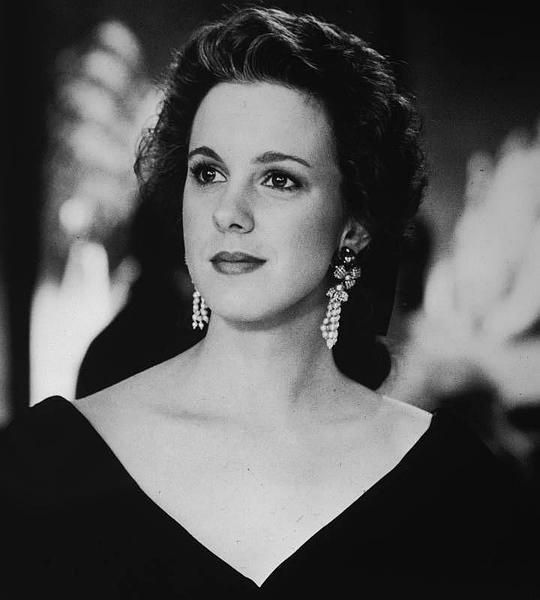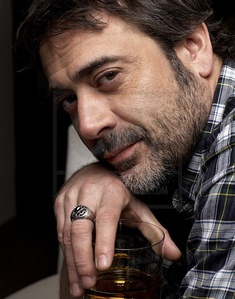单身毒妈 第一季 Weeds Season 1(2005)
简介:
- 由于丈夫的意外死亡,单亲母亲Nancy Botwin(玛丽·露易斯·帕克 Mary-Louise Parker 饰)成了一名膝下抚有两子的单身母亲,一无所长的她找不到一份能养活一家三口的工作,为维持家里的生计她选择了在所住的富人区里贩卖大麻,虽然收益丰厚,却也风险不小。大儿子Silas(亨特·帕瑞施 Hunter Parrish 饰)正处青春期,叛逆不羁。小儿子Shane(亚历山大·古尔德 Alexander Gould 饰)有点孤僻,不合群。最糟糕的是小叔子Andy (贾斯汀·柯克 Justin Kirk 饰)还寄住家中总是胡作非为。Nancy在贩大麻的同时还要辛苦躲避她的孩子,亲友,还有她的好友Celia(伊丽莎白·帕金斯 Elizabeth Perkins 饰),于是闹出了一连串啼笑皆非的事……
演员:
影评:
- 《weeds》(单身毒妈)是从第二季开始看的。开头几集结构比较散,要不是黑色幽默吸引着差点看不下去。幸好每集不到半小时,越往后越精彩。特别是结束的第十二集,线索瞬间爆发撞在一起,像《两杆老烟枪》。期待它第三季的表现。
特别要赞的是这个剧集的配乐,两季的原声碟都值得一听。推荐片头主题曲《Little Boxes》。这首Pete Seeger在60年代唱红的讽刺中产阶级近郊社区的民谣,在《weeds》第一季由作者Malvina Reynolds演绎成了香草版,而到了第二季,每集都请来不同乐风的著名艺人重新诠释。Elvis Costello的蓝调民谣版 、Death Cab For Cutie的摇滚版、Engelbert Humperdinck的怀旧民谣版 ,十几个版本合起来听,格外有意思。
下面详细介绍一下
weeds 片头曲 Little Boxes
作者MALVINA REYNOLDS(1900-1978)生于旧金山,就读于伯克利加州大学,在该校获学士、硕士和博士学位。她因积极参加左翼政治活动,被列入黑名单,就业遇到困难。在创作政治歌曲的同时,她先后当过裁缝、社会福利工作人员、教员和钢铁厂工人。她写了五百多首歌曲,而且在国内外成为颇有造诣的表演家。她的几首歌是流行歌曲,包括琼.比斯1962年灌制的《你们对雨干了什么?》以及1963年皮特.西格灌制的《小盒子》。后者批评了由遍布市郊的“用廉价材料造的房子”所象征的整齐划一、用户至上主义和政治冷漠。这首歌深受大学生和其它一些人的喜爱,这些人在“用廉价材料造的房子”里长大,他们想要表明:他们并非“结果完全相同”。
中英歌词
LITTLE BOXES
Little boxes on the hillside,
Little boxes made of ticky tacky
Little boxes on the hillside,
Little boxes all the same,
There's a green one and a pink one
And a blue one and a yellow one
And they're all made out of ticky tacky
And they all look just the same.
And the people in the houses
All went to the university
Where they were put in boxes
And they came out all the same
And there's doctors and lawyers
And business executives
And they're all made out of ticky tacky
And they all look just the same.
And they all play on the golf course
And drink their martinis dry
And they all have pretty children
And the children go to school,
And the children go to summer camp
And then to the university
Where they are put in boxes
And they come out all the same.
And the boys go into business
And marry and raise a family
In boxes made of ticky tacky
And they all look just the same,
There's a green one and a pink one
And a blue one and a yellow one
And they're all made out of ticky tacky
And they all look just the same.
山坡上的小盒子,用廉价材料做的小盒子。
山坡上的小盒子,一模一样的小盒子,
有绿,有红,有蓝,有黄,
它们全都用廉价材料制成,
看上去一个样子。
这些房子里的人,
全都读大学,
在大学他们住在盒子里,
结果完全相同。
有的当医生,有的当律师,
有的当董事,
他们都用廉价材料制成,
看上去一个样子。
他们都打高尔夫球,
喝无果味马丁尼酒。
他们都有可爱的孩子,
孩子们上学,
孩子们去夏令营,
然后进大学,
在大学他们住在盒子里,结果完全相同。
小伙子跨入商界,
结婚成家立业,
住在用廉价材料制成的盒子里,
看上去一个样子。 - 据说剧名weeds除了指代大麻之外,同时隐射“widow's weeds”(寡妇的黑色丧服),最重要是象征了不屈不挠顽强生存的杂草精神。编剧如此匠心独具,不但发挥符号多重指意的潜能,同时将反讽运用到极致,料是罗兰•巴特也会赞赏有加。
剧集发展到第七季,Botwin一家转战NYC,Nancy重新开始大展拳脚,情节较之前两季已然有所进步。但我依然觉得无味。或许因为这部剧集最初吸引我的是其俯拾皆是的讥讽,关于阶级,关于性别,关于种族。当讽刺作为一种公然的标签,也就成为其核心价值之所在,成为观众追随的理由。然而从第四季开始,这种讽刺力度削弱,肥皂剧气质凸显,虽然编剧辩解剧集将关注点转移到加州和墨西哥的关系上,但我始终觉得这种表达很是苍白浮浅。
让这部剧集声名显赫的,首先在于它对中产阶级生活方式的讥讽。特定的生活方式之所以很重要,原因就在于其表达了特定的意义和价值。这也就解释了为何Nancy在丈夫猝死之后情愿操起大麻生意,也不愿找份工作,辞掉女佣,离开自己熟悉的优渥环境。同时解释了为何Nancy在将名牌车抵押交换大麻后,不愿让Celia看到自己开着破车的窘境。而Celia在PTA(家长教师协会)的经历更是让人啼笑皆非,几个百无聊赖的中产阶级妇女为了协会主席之位勾心斗角,新官上任之后立刻发动辞掉被怀疑是gay的体育老师,因为觉得不利于自己孩子男性气质的培养。Celia的老公很早就跟网球教练偷欢(需要特别注意的是欧美影视中描述中产阶级男性通常是跟自己的女网球教练偷情,而中产阶级女性通常是跟自己的男高尔夫球教练偷情,运动也被赋予阶级性),最后这个事实还被自己的女儿抖露出来。剧中的中产阶级男性无论是律师还是会计,一样的空虚无聊,一样的无毒不欢,也正是这群顾客的存在,让Nancy的大麻生意开始起步。而最让人唏嘘的,莫过于第三季末尾,小镇起火,Nancy站在山坡上眺望,同伙询问哪座是她的房子,Nancy语塞,因为这些房子看起来几乎一模一样,就好象居住在这些房子里的中产阶级的人生也几乎无异,在这里就和剧集的主题音乐“Little boxes”形成完美的呼应:“And the people in the houses, All went to the university. Where they were put in boxes. And they came out all the same. And there's doctors and lawyers. And business executives. And they're all made out of ticky tacky. And they all look just the same. ”
曾经有美国影评人表示这部剧集对于女权主义的展示简直到了令人惊恐的地步。一般来说,女权或许是一种自我改造的隐喻,反抗父权压迫,获得发言以及行动的权力。电影或电视里展现的女权,通常是推翻男性的宰制性凝视,超越女性被征服、被凌虐的弱势立场。而这部剧集则是彻头彻尾的女性主导,Nancy是毫无争议的领袖,在家管教两个儿子和一个小叔子,在外操纵自己毒品小圈子的各位男性,甚至包括一位缉毒探员和一个墨西哥大毒枭,哄骗、利诱、威胁、性吸引力,无所不用其极。尤其是第三季结束Nancy纵火烧掉自己旧居之后脸上满足的微笑(纵火这种行径本身就是控制的象征,权力的体现),曾经和丈夫一起缔造的过去化为灰飞,浴火重生不过如此。编剧不但满足了女性观众的窥视欲和心理认同,同时也勾画了一种阉割恐惧。比如Andy处心积虑想要将自己犹太教学校的美女骗上床,床是上了,不料美女却戴上一个巨大的深紫色dildo,非常强势地将Andy推到,自己占据top的位置,Andy此刻只能假意承欢,畏缩求饶。这一幕所表现的强烈性别意味,让人侧目。
前三季还有一个主要的叙事元素,那就是种族问题,主要通过大麻供货商Heylia一家的语言来展现。当然种族这种概念的存在,主要是由于种族主义这种意识形态的经久不衰。Heylia住进白人聚居的中产阶级社区之后,偶遇无数陌生的白人与她打招呼,而她对此的评论可谓是一针见血,“There's only one thing more powerful than white fear, and that's white guilt. Now,they say ‘good morning’,but what they're really saying is,‘I'm not racist’”。此类反讽也是不绝于耳,略下不表。 - It started with Sam Fuller's "Naked Kiss", circa 1964. But it is not until after "American Beauty" that a sardonic view of suburan life has become mainstream. Then screens big an small have been flooded with cliched attacks on middle-class respectability. If "Weeds" has been built on this premise alone, the jokes would have got tiresome pretty quickly. But noooo-nooo-nooo-no!
The best jokes in "Weeds", in fact, have little to do with suburbia per se. As good jokes should be, they are more whimsical to fit into any easy social category. For example, where does the battery-for-dildo bit belong in the grand themes of contemporary American sociology? Or the situational joke of having Celia sitting down with the "Tennis Pro" for endless rounds of drinks, while the pendulum of her anger sways between her husband and his mistress?
Sometimes the writers let the same joke run a bit tired, like Celia's several fond farewells to her breasts. Then some of the actions ascribed to a character are not well thought out enough to be plausible; example: Nancy smashing the DV with her husband's memory. Sure, someone can do that and it wouldn't invalidate their emotions; but in the case of Nancy, we feel that the nice middle-class upbringing a=that we spot in her temperament wouldn't have allowed this particular outburst.
In fact, the greatest thing about Mary-Louise Parker as Nancy is her convincing middle-calss soccer-mom-ness. None of the high-baroqueness of the absurd characters in "Desperate Housewives", or the tropical-bird exotica of Annette Bening in ""American Beauty" or Frances Conroy (Ruth) in "Six Feet Under". Nancy is creditable and desirable as a mother and wife; one easily subscribes to her merits as a Longtime Companion (pun on her ground-breaking 1990 movie confronting AIDS).
Well, Parker has sure walked far since her "Fried Green Tomatoes" days. Bravo! - 很喜欢这样风格的美剧,HOT MAMA.
太喜欢这个妈妈了,2个儿子也太特色了,小儿子的眼睛太逗了。。。。。






